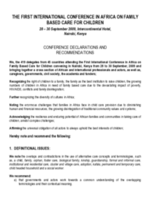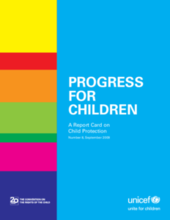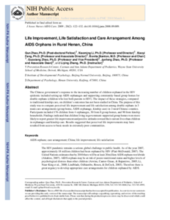Displaying 2071 - 2080 of 2221
Summary of conference delegates' declarations and recommendations
This paper examines the efficacy of Independent Living (IL) services in the United States in preparing foster youth to live “independently”, and calls into question the appropriateness of an “independence” goal for youth aging out of foster care.
For this study, surveys were employed to explore the experiences of children in care and their carers about traditional fostering.
This paper reports research on outcomes of long term foster care from an eight year longitudinal study of foster care placements in Australia.
Summary of conference declarations and recommendations prepared by over 400 conference participants emphasizing the crucial importance of family based care for children without parental care.
Manual to assist countries in strengthening their information system around children in formal care through data collection around 15 global indicators
The first comprehensive resource on child protection statistics. Includes data on children without parental care, child trafficking, child marriage, children with disabilities, etc.
This document contains revised alternative care guidelines for Ethiopia. It discusses how development intervention has shifted from a needs based approach to a rights based approach.
This study aims to compare perceived life improvement and life satisfaction among double orphans in 3 main care arrangements (group home, AIDS orphanage, kinship care) in 2 rural Chinese counties.




